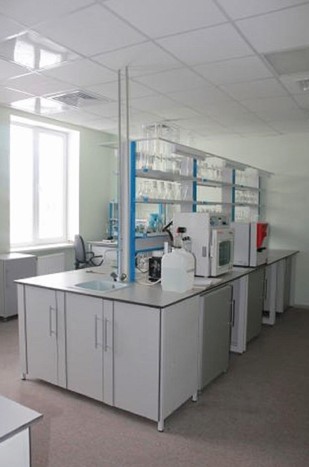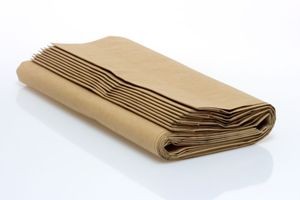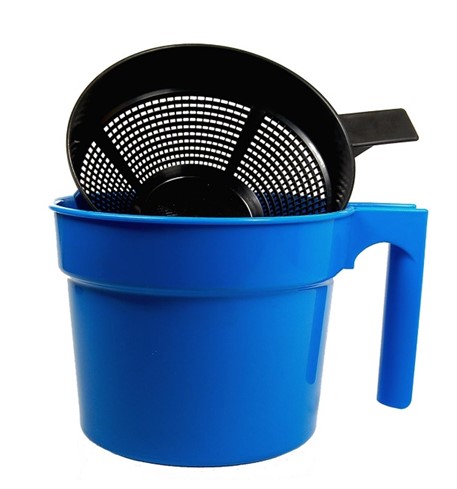New documents: concessional lending plan, clarifications to the law on waste and registration of veterinary certificates

The Ministry of Agriculture of the Russian Federation has prepared a plan for concessional lending to the agro-industrial complex for 2023. The total limit of funds for servicing the concessional lending mechanism in 2023 may amount to 157.9 billion rubles, of which 14% (at the level of 2022), or 21.5 billion rubles, to support the attraction of new loans, 86% (136.4 billion rubles) - to service obligations under previously concluded loan agreements. Compared to the final values of 2022, the total limit of funds was reduced by 12% (-21.5 billion rubles), including by 17.2 billion rubles. - to service the obligations assumed under existing loan agreements.
The main reason for reducing the limits is the reduction in the key rate of the Bank of Russia: compared to the initial limit for 2022, the planned volume of support for concessional lending in 2023 increased by 57.5 billion rubles, compared to 2021 - by 67.4 billion rub. The limit of funds to support short-term lending in 2023 on new loans has been reduced by 6.6 billion rubles; on the contrary, to support investment lending, it has been increased by 2.2 billion rubles.
For enterprises of the dairy industry, the planned volume of support for concessional lending was increased by 21.7% (+4.8 billion rubles), to 27.0 billion rubles. (practically corresponds to the limit stipulated for the industry as of the end of November 2022, which was not fully claimed based on the current lending conditions). At the same time, the need for funds to service existing contracts increased by 5.7 billion rubles, as a result of which the planned volume of support for attracting new short-term loans was reduced by 1.0 billion rubles, to 1.9 billion rubles, support for attracting new investment loans practically corresponds to the final values of 2022.
Compared to the initial limit for 2022, the planned limit for 2023 for dairy industry enterprises has been increased by 10 billion rubles. (+59%), in comparison with the level of 2021 - by 2.1 times (+14.4 billion rubles). Since January 18, applications for preferential short-term and investment loans have been opened in all areas of intended use.
Clarifications to the law on manure and litter
The Ministry of Agriculture of RUSSIA, with the participation of Soyuzmoloko and other livestock unions, has prepared official clarifications regarding the most popular issues of handling livestock by-products (LBP) in accordance with 248-FZ of 07/14/2022. The agency clarified that there is no need to build any separate treatment facilities for runoff from animal housing facilities - previously such a risk was seen in a literal reading of the requirements for manure handling.
In addition, the nuances of submitting an annual notification of classifying manure as LLS (rather than waste) have been clarified, as well as the issue of the absence of the need to issue VSD for processed LLS.
Rules for issuing veterinary certificates
The Ministry of Justice approved the order of the Ministry of Agriculture of the Russian Federation dated December 13, 2022 No. 862, which spells out new rules for issuing veterinary accompanying documents in the FSIS "Mercury". It contains updated veterinary rules for the organization of paperwork, as well as the procedure for their execution on paper and electronic media. The document, which comes into force on September 1, 2023, will replace the order of the Ministry of Agriculture dated December 27, 2016 No. 589.
According to the new rules, if a controlled product is stored or moved in brine, marinade and (or) packed in consumer packaging with brine, marinade, then the volume of this product is indicated in the production VSD, taking into account the brine, marinade and without them. This solves the problem of specifying the net weight of products supplied in a specialized environment, which is vital for manufacturers of cheeses in brine.
In addition, the document increases the time for issuing production VVD up to 48 hours after the completion of the process and establishes the possibility of redirecting goods when issuing a return VVD to a specific point. The participants in the turnover are given the opportunity not to issue a paper TRR in the event of an emergency, as well as the opportunity to issue an electronic TRR within 48 hours after its completion. Also, the new rules exclude the cancellation of an account when critical errors are detected and provides for the possibility of a mandatory warning via e-mail when they are detected.
Bringing public funds to farmers
The Ministry of Agriculture of the Russian Federation has developed amendments to the state program for the development of agriculture, which increase the responsibility of the regions for the timely delivery of federal budget funds to farmers. The draft of the relevant government decree is posted on the website of draft regulatory legal acts.
According to the explanatory note, the Ministry of Agriculture proposes to establish a condition to reduce by 10% the subsidy limit provided for the subject of the Russian Federation in the federal budget for the current financial year, if the regional authorities in the first quarter bring to the recipients less than 40% of the total subsidies. For Adygea, Kalmykia, Krasnodar and Stavropol Territories, Astrakhan, Volgograd and Rostov Regions, this indicator is proposed to be set at a level of less than 50%, for regions that are part of the Far Eastern Federal District - less than 20%. The amount of subsidies is calculated in accordance with the rules of the state program. As explained in the note, "the establishment of different requirements for the level of disbursement of funds for individual constituent entities of the Russian Federation is due to natural and climatic features,
"The introduction of these measures will increase the level of financial discipline of the constituent entities of the Russian Federation in order to most rationally distribute federal budget funds," the document says.
Animal labeling Ministry of Agriculture
Russia has developed a draft resolution of the government of the Russian Federation, establishing a list of animals subject to labeling and accounting, as well as the rules for such accounting. For cattle, the rules will work from September 1, 2024, the basis for registering an animal is its labeling or import into Russia.
According to the draft resolution, cattle, including pharynx, buffaloes and yaks, horses, donkeys, camels, bees, pigs, sheep and goats, poultry, deer, fur animals, fish and service animals are subject to marking. It is noted that the basis for recording an animal is its labeling or the import of labeled animals into the territory of the Russian Federation.
The registration of animals is carried out by specialists in the field of veterinary medicine. They assign a unique alphanumeric identification number (UIN) to the tagged. The UIN is valid throughout the life of the animal. Re-registration of a group of animals with the assignment of a new UIN is allowed if the group includes animals that were previously included in other groups of animals subjected to registration, or if more than 25% of animal heads are simultaneously entered into the group of the number of animal heads indicated in the information system in the area veterinary medicine during the previous registration of this group of animals, the document says. The registration of the animal must be carried out no later than 10 calendar days from the moment of its marking and importation into the territory of the Russian Federation.
Rules for slaughter
The Ministry of Agriculture has made changes to the rules for slaughtering animals and veterinary sanitary examination of MEAT. The corresponding order of the Ministry of Agriculture No. 818 on amendments to the current rules is posted on the official Internet portal of legal information. The changes relate to the preparation of animals for the slaughter process. Thus, paragraph 13 of the veterinary rules effective from September 1, 2022 states: “Animals are slaughtered in ways that do not cause stress in animals and ensure humane treatment of animals.”
The new order of the Ministry of Agriculture excluded the words “not causing stress in animals” from this paragraph. As the authors of the amendments explained, this was done to reduce the costs of farmers. When discussing the draft amendments, animal rights activists spoke out against such changes. The public organization "Voices for Animals" applied to the Ministry of Agriculture with a proposal to reduce the level of suffering of farm animals during slaughter. Social activists put forward their own project of changes, according to which it was proposed to painlessly deprive animals of consciousness before slaughter.
Requirements for the genetic material of cattle
The Board of the Eurasian Economic Commission (EEC) approved new chapters of unified veterinary requirements and forms of veterinary certificates for in vitro embryos of cattle (cattle) and embryos of small ruminants (SMR).
It is clarified that the requirements for in vitro bovine embryos and MRS embryos have not yet been defined either at the national level of the Member States or at the commission level, which made it difficult to import them into the territory of the union and free circulation on it.
In addition, the EEC updated the unified veterinary requirements and forms of veterinary certificates in accordance with the standards of the World Organization for Animal HEALTH (OIE) for large artiodactyls in terms of bovine spongiform encephalopathy, as well as zoo and circus animals in terms of epizootic welfare for contagious animal diseases.
Plant genetic passports
Russian President Vladimir Putin signed a law that postpones the introduction of plant genetic passports until 2025 in order to reduce the administrative and financial burden on the agricultural business. The document is published on the official portal of legal information. The law postpones to a later date the entry into force of a number of norms of the new edition of the law "On seed production". This edition should come into force on September 1, 2023, and the rules on issuing a genetic passport for a variety or hybrid of an agricultural plant - from January 1, 2024.
A passport is issued if molecular genetic analysis did not reveal genetically modified organisms in the seeds, and tests were carried out on economically useful traits or properties of a variety or hybrid that are included in the list approved by the government of the Russian Federation. The passport must contain the name of the variety or hybrid, class, category, species, subspecies, genotype, protein or DNA markers that identify the seed variety.
In addition, from September 1, 2023 to September 1, 2024, the deadline for the entry into force of the rules on approving the procedure for storage, production and use of seeds and on the payment of state duty for consideration of applications for entering information into the state register of varieties and hybrids of agricultural plants approved for use is postponed.
Veterinary preparations and OKVED
On behalf of the Government of the Russian Federation, Rosstandart made changes to the all-Russian classifier of types of economic activity, assigning separate OKVED 2 codes to the production of medicines and materials for veterinary use. Order of Rosstandart No. 1555-st dated December 22, 2022 “On approval of amendment 53/2022 OKVED 2 to the all-Russian classifier of types of economic activity” comes into force on March 1, 2023 with the right of early application. Thus, in class 21, medicines and materials for animals are separately allocated. The allocation of manufacturers of veterinary drugs to a separate industry allows them to count on additional measures of state support.
Introduction of veterinary preparations into circulation
From September 1, 2023, a new procedure for introducing veterinary drugs into civil circulation, approved by Federal Law No. 317-FZ of July 2, 2021, will come into force in Russia. What information manufacturers of medicines for animals will have to provide and within what time frame, the ROSSELKHOZNADZOR prescribed. The draft departmental order is posted for discussion on the regulation.gov.ru portal.
Thus, according to the new rules, manufacturers will be required to provide Rosselkhoznadzor with information about each series and batch of veterinary drugs produced in Russia or imported. Information about the series, batches of medicines entering the civil circulation will be published within 5 working days on the official website of the Rosselkhoznadzor , the document says.
In addition, manufacturers or importers of veterinary drugs annually no later than February 1 will be required to submit to Rosselkhoznadzor a test report in an accredited laboratory for one batch of each trade name of the drug that entered civil circulation during the year.
To put an imported veterinary drug into civil circulation, a conclusion on the compliance of production with the requirements of GMP (Good Manufacturing Practice - Good Manufacturing Practice) will also be required. Such a document is issued by the Rosselkhoznadzor after a GMP inspection of the production site where this drug is produced.
In addition, foreign manufacturers will need to certify the holder of a registration certificate for a veterinary drug and provide test reports for medicines.
Import of seeds for scientific activities
The Cabinet of Ministers approved the rules for the import of seeds into the Russian Federation for examination and scientific activities, the corresponding resolution was published on the official portal of legal information. According to the decree, it is prohibited to import seeds without the necessary label and accompanying documents and treated with substances not registered in the state catalog of pesticides and agrochemicals permitted for use on the territory of the country for examinations and research work.
In addition, for educational purposes, it is prohibited to import seeds containing GMOs or varieties and hybrids of agricultural plants not included in the state register, approved for use in the Russian Federation. The Ministry of Agriculture was instructed to ensure, by September 1, 2023, the technical readiness of the federal state information system in the field of seed production of agricultural plants to accept applications for issuing confirmation of the intended purpose of imported seeds.
The Decree comes into force on September 1, 2024 and is valid until September 1, 2030, with the exception of paragraph 3, which comes into force on September 1, 2023.
Read together with it:
- О самых распространенных причинах пожаров рассказали в МЧС2 октября, Минск. О самых распространенных причинах пожаров рассказал начальник главного управления надзора и профилактики МЧС Дмитрий Турчин на "Предупреждение чрезвычайных ситуаций в осенне-зимний период. Профилактика пожаров и гибели людей от них", которая прошла в БЕЛТА. "В республике наблюдается рост количества пожаров на 7,7%, и на 1......



























































